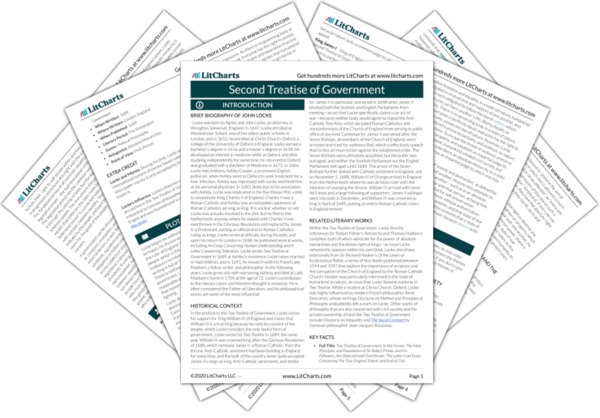Previous
Chapter 10: Of the Forms of a Common-wealth
|
Previous
Chapter 10: Of the Forms of a Common-wealth
|
Second Treatise of Government: Chapter 11: Of the Extent of Legislative Power Summary & Analysis |
Next
Chapter 12: Of the Legislative, Executive, and Federative Power of the Common-wealth
|
